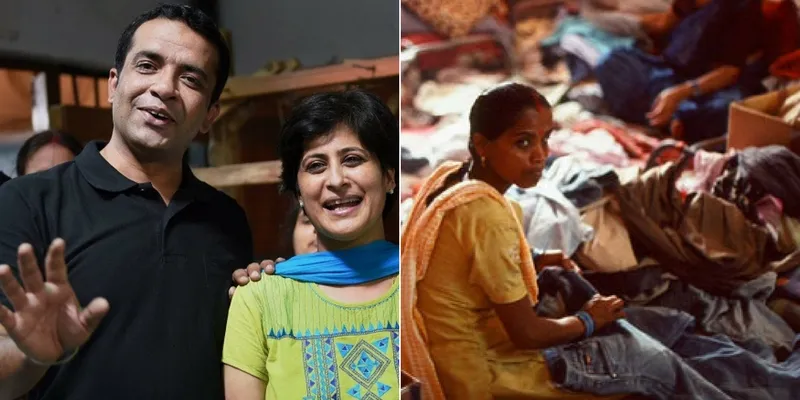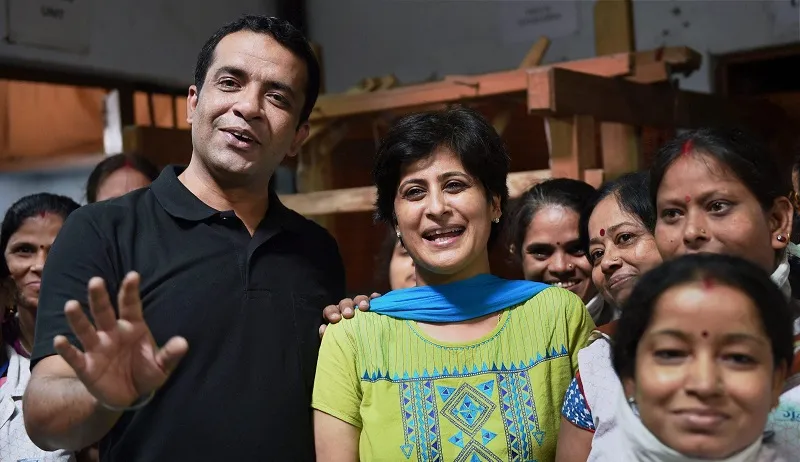This couple clothes rural India with over 1,500 tonnes of material every year
Despite it being such an important need, government policies have largely ignored the value of clothing. It seems to be considered important or worth discussing only during disasters and relief programmes. Goonj, a Delhi-based NGO, aims to change this scenario. It takes excess clothes from the privileged, repairs or recycles them, and gives them to the needy. What's more, by ensuring that people earn the clothes they receive, the NGO also retains their dignity and self-respect.

Started in 1998, the Goonj is largely known for two initiatives — 'Cloth for Work' and 'Not Just a Piece of Cloth' — which have won awards including NASA’s Game-Changing Innovation, the Changemaker’s Innovation Award, and the World Bank’s Global Development Marketplace Award. Talking to The Alternative about the problem the NGO is trying to address, Anshu Gupta, Co-founder of Goonj, said,
"In many rural communities, people have not purchased new clothes in over a decade. Necessities like woollens and sanitary pads are either unaffordable or unavailable in the local village market — the only market poor people have access to. Women, thus resort to using unhygienic and dangerous alternatives like sackcloth, newspaper, cow dung, plastic sheets, and anything that can absorb the menstrual fluid, putting them at grave risk of disease and death."
This does not mean Goonj gives away clothes and utensils for free. In every village, the required infrastructural developments are identified. People are then encouraged to get involved in activities like digging wells and cleaning ponds, for which they are paid with clothes, utensils, and foodgrains. For a family to earn its annual supply of clothes and other materials, it has to work just for three days. This gives a sense of accomplishment to the people and boosts their self-esteem.

In the traditional Indian household, a woman is not allowed to spend even the money she herself has earned — more often than not, her husband spends it on alcohol and she ends up in tattered saris. Goonj, therefore, runs a campaign called 'Your Saree for Dignity', under which women in the poorest regions of states like Odisha, Bihar, Andhra Pradesh, Tamil Nadu, and Uttarakhand are given saris for the work they take up. This includes saris for everyday needs and also those for occasions. In an interview with Scroll, co-founder Meenakshi Gupta said,
“We have come across women who, after natural disasters, refused to accept any other clothing that we gave them and continued to wear the few saris they had with them.”
Goonj started with 67 clothing items two decades ago and now receives more than 1,500 tonnes of material every year.
Do you have an interesting story to share? Please write to us at [email protected]. To stay updated with more positive news, please connect with us on Facebook and Twitter.







